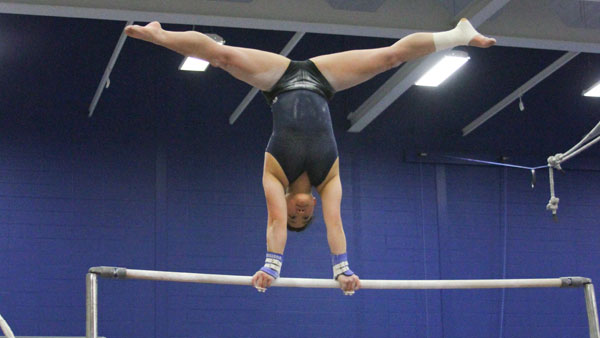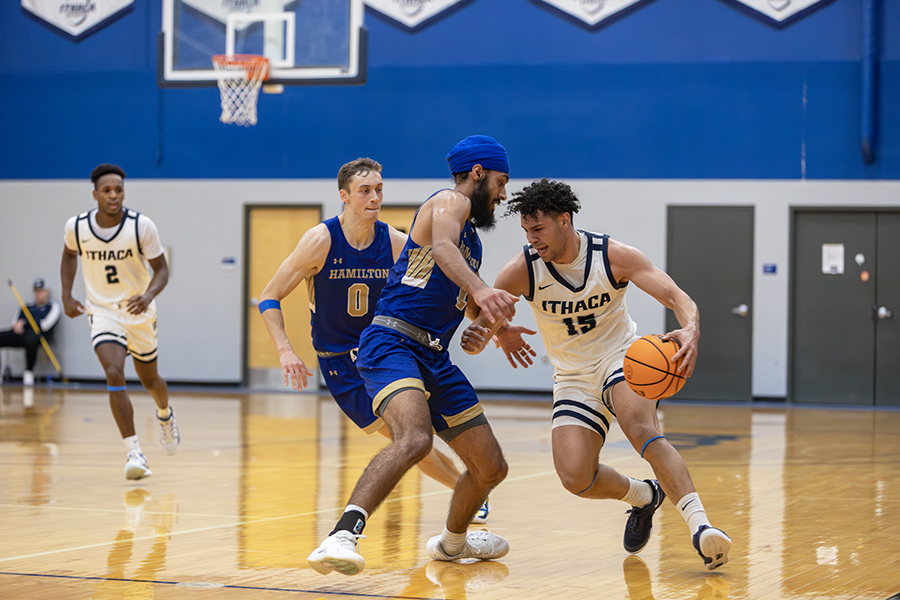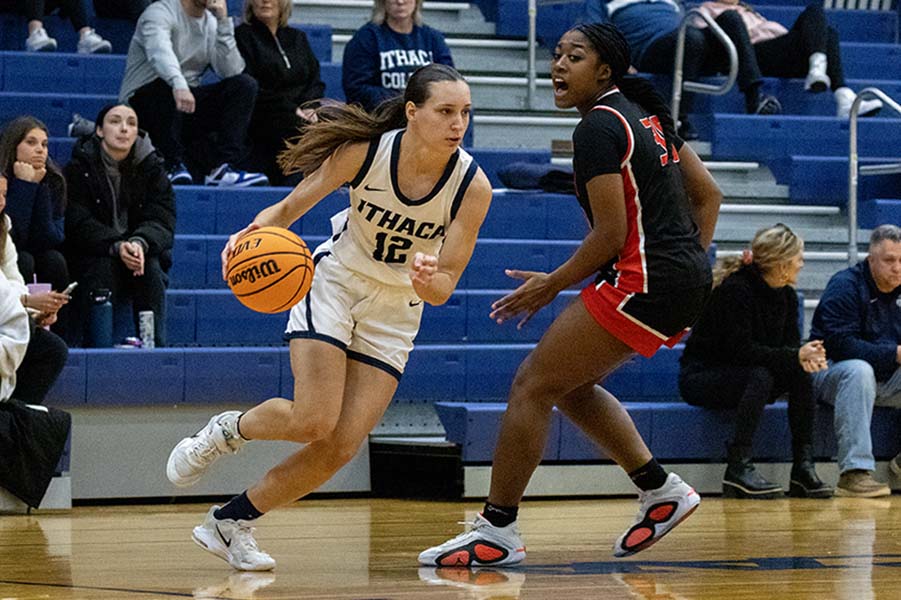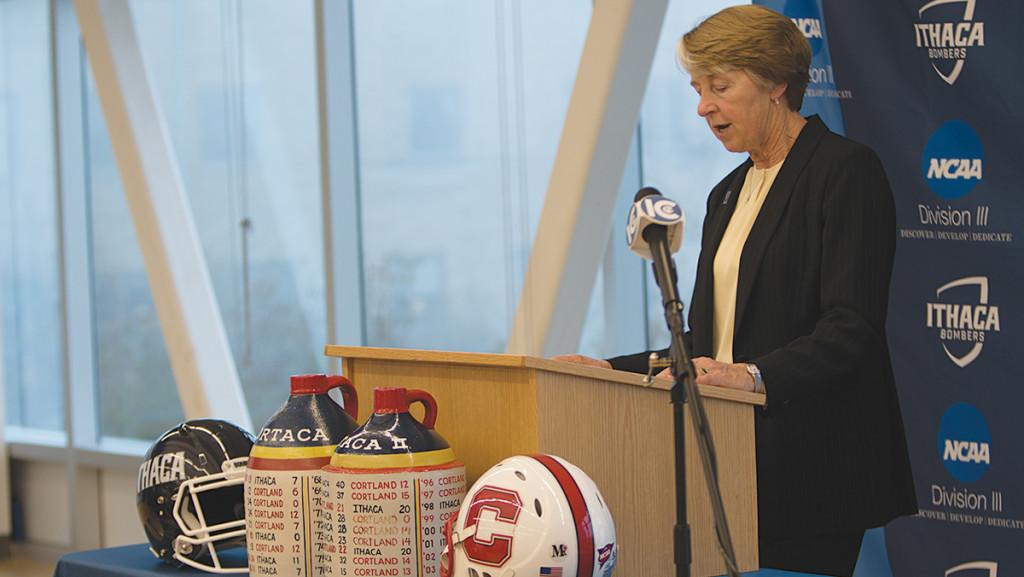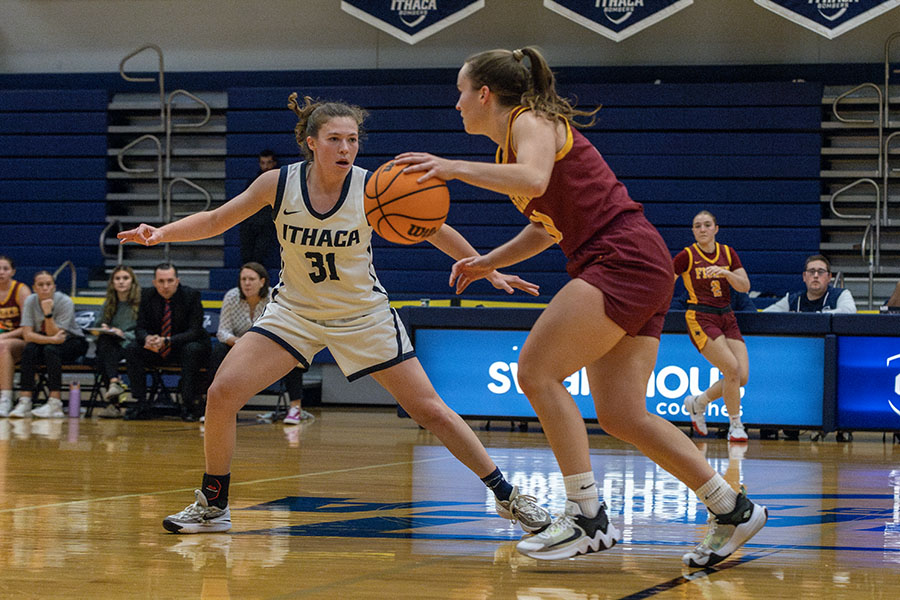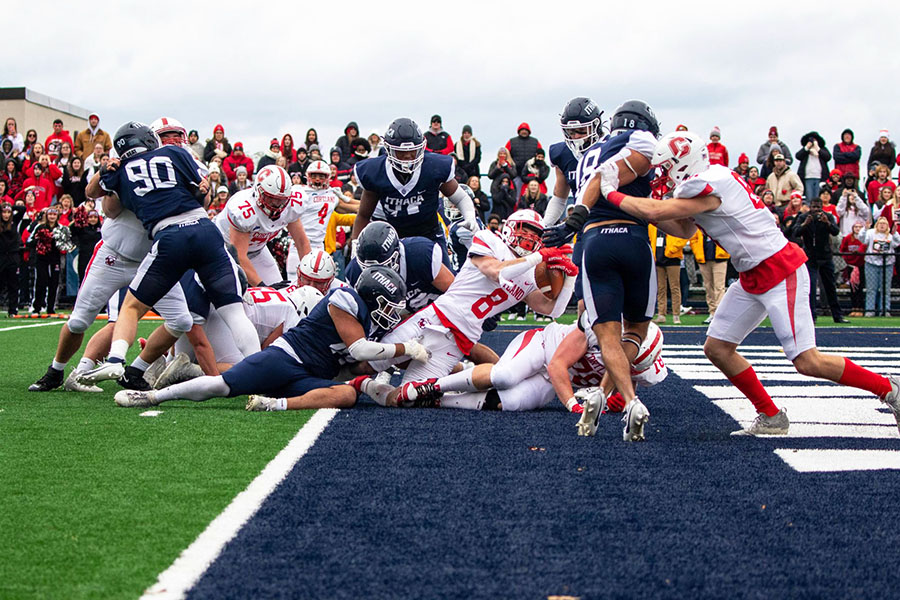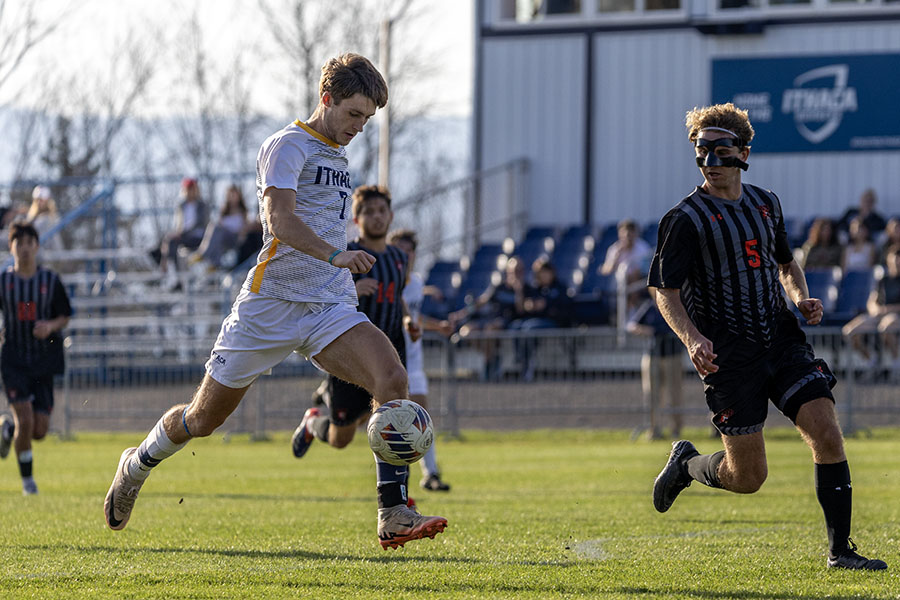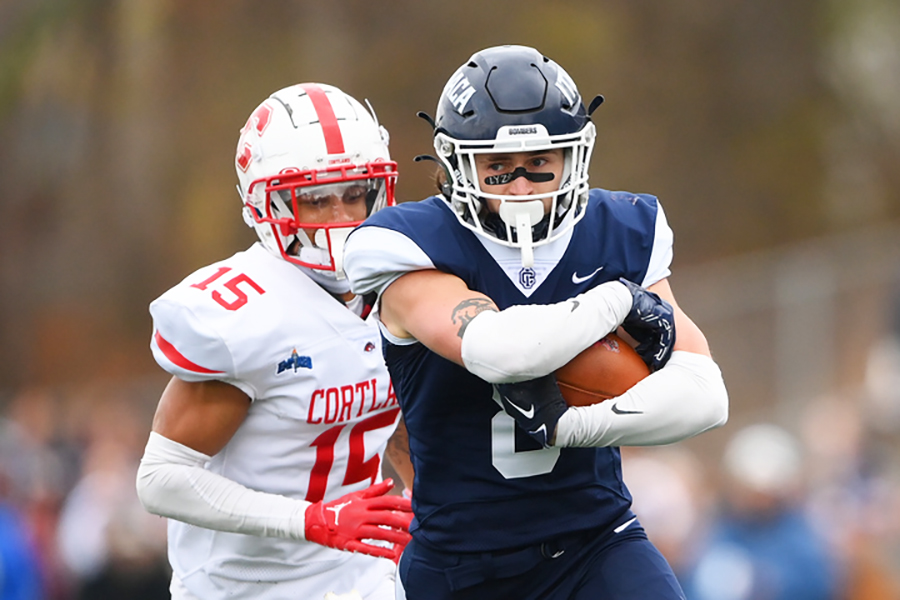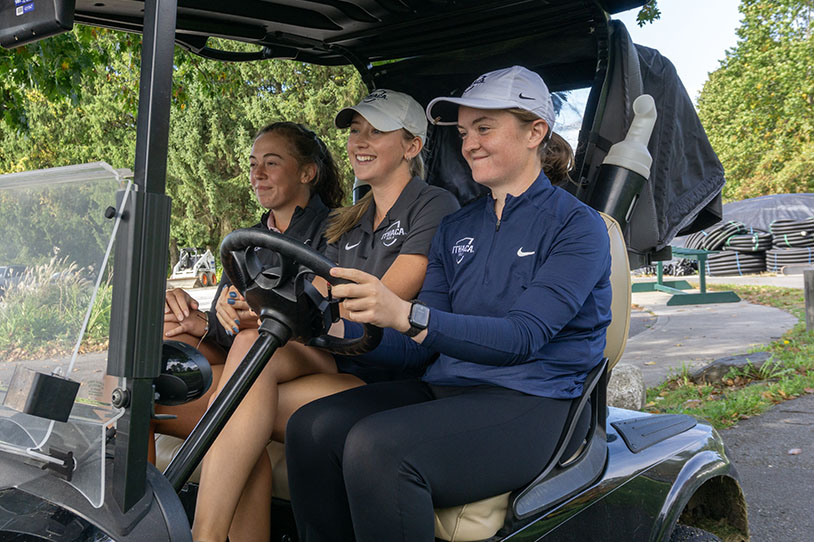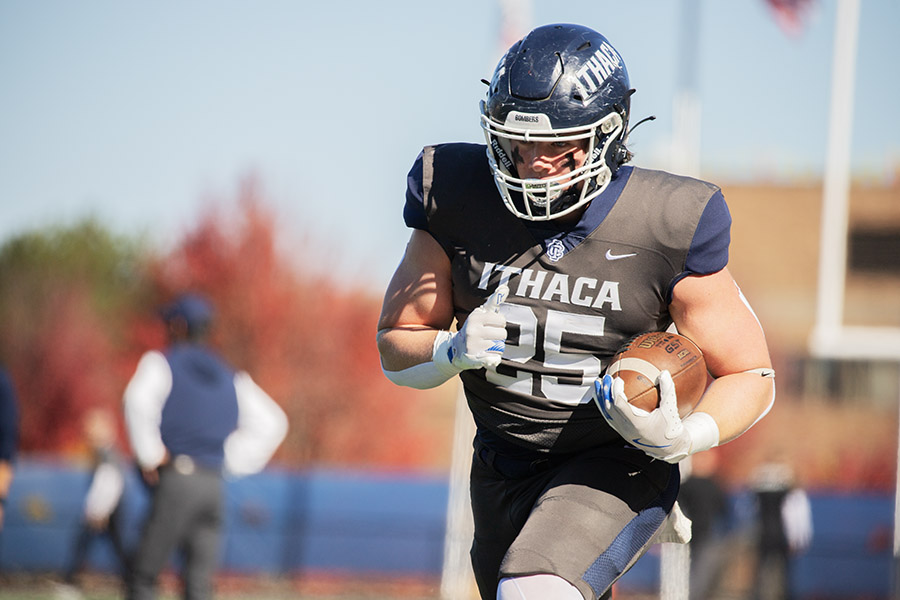Imagine waking up and going through daily routines when, all of a sudden, your legs feel like they are on fire and begin to shoot a numbness to your feet, keeping you from continuing your everyday activities. This is the common reality for senior gymnast Shilanna Gallo.
Gallo suffers from a rare disease called Compartment Syndrome, which increases the pressure in the tissue of the legs and arms. For Gallo, the syndrome affects her legs, yielding an insufficient blood supply that stops the muscles from expanding correctly. Despite having received surgery on her legs for Compartment Syndrome in the beginning of the season and spraining her ankle shortly thereafter, Gallo still leads the gymnastics team on the uneven bars with an average score of 9.25 this season. She was also East Coast Athletic Conference Division III Gymnast specialist of the week on Jan. 19.
With both the surgery and the injury, Gallo has only been able to practice her uneven bars routines because she wants to remain cautious with her legs, she said.
“Bars is my favorite event, and to know that the hard work is paying off in the meets is very satisfying,” she said. “When I spend that much time training for one event, you would hope that going into the meets it’s going to be worth it, but it seems to be paying off.”
The surgery was a major setback for Gallo because she wasn’t able to train until two months into the season, she said. After recovery and getting her doctor’s approval to train, she began working out again until she sprained her ankle.
“Having the weakness from the surgery, my ankles probably weren’t as strong as they should have been, and I just landed weird, and then I sprained my ankle,” she said. “It was more frustrating just because I knew right before the season is not the best time to get hurt.”
Though Gallo wasn’t able to begin the season injury free, she said the setbacks she had helped her body get the rest it needed.
For the past four years, she has had discomfort in both of her legs that would sometimes make her feet numb. Gallo said the pain was absent unless she was physically practicing — until the spring of 2013, when a bad flare-up caused the pain to interfere even when walking to classes. Though Gallo said she was aware of the discomfort she was having for those four years, she was only diagnosed with the Compartment Syndrome after the flare-up.
When Gallo underwent surgery in August, the doctors had to cut the fascia in her legs, a thin layer of fibrous tissue around the muscle of the legs, in order to relieve the pain she was having from this syndrome. The fascia wasn’t allowing her muscles to expand correctly, which caused the excess pressure and discomfort. After the surgery, her pain eventually subsided, she said.
Compartment Syndrome isn’t common in gymnasts, according to Gallo. The syndrome is more common in runners or people who perform activities that are more strenuous on the legs. Gallo said this is why it is so unusual for her to have the syndrome.
Head coach Rick Suddaby said he has noticed the hard work Gallo has been putting in this season, and he has been impressed by Gallo’s performance, despite her ailments.
“She works hard, and she works smart,” he said. “She runs into problems with things that bug her physically and little injury kinds of things, and then she can push for a while, [but] she knows when to pull back, and then she knows when she can go back at it.”
Teammates have also noticed how well Gallo has been doing this season and the hard work she has been putting in to get to this point. Sophomore Emma Duncan said Gallo’s determination has motivated the team.
“I think it’s very inspiring to watch her come back after surgery,” she said. “Personally, I just had ACL surgery, so if she can do it, it makes me feel like I can do it, and I feel that way for all the other girls who have had surgery this year, and she’s just a great role model for all of us.”
Gallo has had many accomplishments this season, but she said she would still like to achieve her goals of becoming an All-American on the uneven bars, like she did in her freshman year, and becoming a national qualifier, which she has accomplished her entire collegiate career.
“It would be the ultimate goal to end my career in that way,” she said. “If it happens, it happens. If not, I can’t say I didn’t try, but I think if I am able to keep doing what I’ve been doing, it’s definitely possible.”


